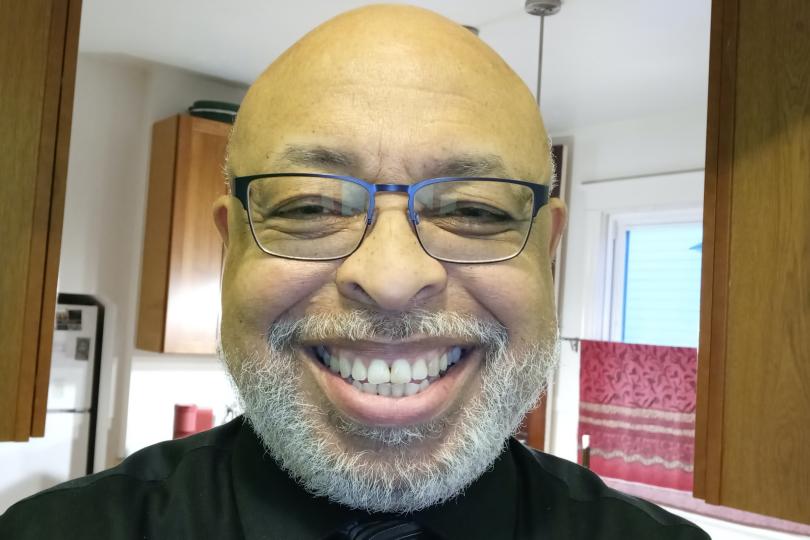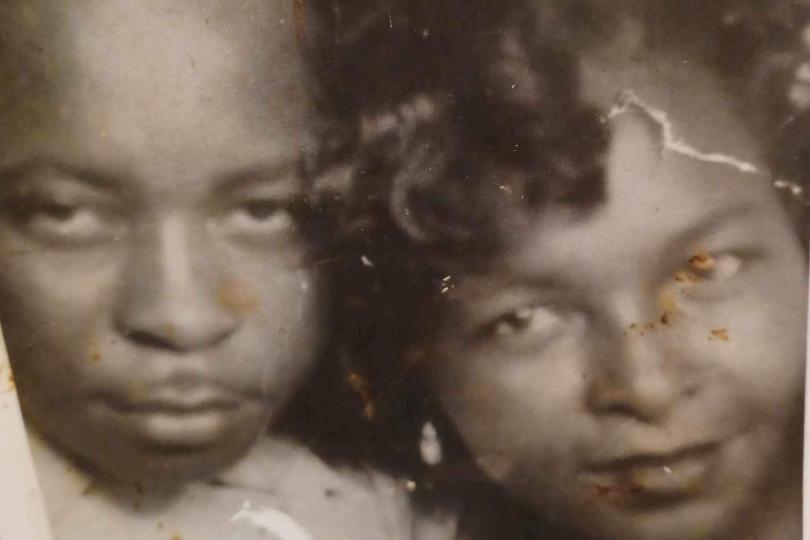Interview with S.T. Jamison Jr. on origin story behind new play “Lift Every Voice: A Letter to the Editor” by Tylie Shider

Interview with S.T. Jamison Jr. on the origin story behind my new play “Lift Every Voice: A Letter to the Editor”
Tylie Snider I was shocked to learn that I was the first person you told the story about the letter you wrote to a local editor in Mississippi challenging her protest against the Civil Rights Movement. What made you share your story with me?
S.T. Jamison The editor, Nina Goolsby, was the editor of the Oxford Eagle in Oxford, Mississippi. I shared the story with you because you asked about stories and experiences regarding my upbringing in the Jim Crow South. I never told the story to anyone because it was so unsettling to my mother. It brought up such pain in her and after a while I began to think it did not matter. It was like an old heirloom wrapped tightly in tattered cloth in a dusty attic. Meaningful at the time, but perhaps not as relevant as I grew older.
TS How old were you when you wrote the letter?
ST I was probably 14 or 15 years old when I wrote the letter.
TS In the play, the character Junebug writes a few drafts of his letter, and I use letter writing as a kind of motif to build the drama in the play. How many drafts did you write?
ST I think I must have made a couple of drafts of the letter. I used an old typewriter, and at the time, I used “white out” to make corrections. You may be familiar with it, but it consisted of tape-like white strips that would “whiten” out a mistake you made while typing a wrong key on the typewriter. You simply typed on the mistake and it “whitened” out the mistake. It is now a relic of the time, archaic.
“Mississippi, during my father’s youth, appropriated only 1/4th the amount of educational dollars per black pupil as opposed to white children.”
TS Yes, I remember white-out. The Oxford Eagle is a real local newspaper in Lafayette County, Mississippi, did your parents read that paper? Coming up, how important was education in your house?
ST Yes, my parents did read the newspaper. Actually, my father read it more than anyone in our household. He religiously bought a new copy every day and would read out loud the stories contained in the paper. Education was extremely important in my household because my father was unable to acquire a traditional education during his growing up years. Mississippi, during my father’s youth, appropriated only 1/4th the amount of educational dollars per black pupil as opposed to white children. However, my mother bought us a set of encyclopedias which cost her between 200- 400 dollars at the time, and she paid from 2 - 3 dollars each payment installment. She made an incredible sacrifice to secure our education. It was paramount that we got our homework done, read, and tried to do our best in school despite the challenges of being poor and having no examples of immediate family members who had gone to college. Many of my family members, aunts and uncles, did not graduate from high school. However, all of my siblings did graduate from high school, except 1 brother.
TS A young student who decides to write a letter to an editor must have a significant relationship to words and literature. Were there any books or writers that shaped your mind as a young reader? Can you identify some of the ways in which those works influenced your perspective on the emerging Civil Rights Movement at the time?
ST Yes, I loved words and literature. I had begun to read voluminously at the time. I was inspired by several of Dr. Martin Luther King’s books such as “Conflict of Conscience” and “Stride Toward Freedom.” I had also begun to read books by the black writer and journalist, Lerone Bennett, who wrote, “Before the Mayflower” and “Black Power, USA 1867 - 1877.” I read Dr. James Silver’s book, “Mississippi: The Closed Society,” about the brutal and unjust system that existed in Mississippi that had a kind of totalitarian white supremacy. I wanted to become a spokesman for black rights, a writer, a teacher and a person who used powerful language and analogies to tear down Jim Crow and white supremacy and inequality. Reading these powerful books inspired me immensely. Also, my father stole books from Ole Miss. Books that we could not get as blacks. These were college level books that I devoured early on. My father risked his life stealing these books to increase my knowledge.
TS Do you remember the first time your father brought home books from Ole Miss? What year was your father born? Growing up, did he acquire any education?
ST I vaguely remember the first time that he brought them home. I could not have been more than 6 years old or so. He started working at the University of Mississippi in 1960 after having left the plantation as a result of a dispute with the plantation owner. My father was born on December 31, 1931. My father did not graduate from high school due to the inequities of Jim Crow and having to drop out of school at 14 years of age to help take care of his family because his father had a nervous breakdown.
TS I sent you an early draft of the play. What was your first reaction after reading it?
ST If I remember correctly, I liked it and was impressed with the depth of writing and how it captured my thinking during that time. However, I think I mentioned to you that I felt that Nina Goolsby would never have embraced me, or perhaps would have been extremely hesitant to talk to me about what the Civil Rights Movement was really about simply because she was so entrenched in her way of thinking - which embraced the Confederacy and segregation and all that they meant.
TS In hindsight, do you believe the editor’s viewpoint on segregation remained unchanged? If so, why?
ST I cannot know for certain about Ms. Goolsby; however, considering the nature of things and the time she lived in, I seriously doubt whether she would have changed her views regarding segregation. Many whites like her came to live with integration because things eventually changed, but they never truly accepted it as part of their personal lives, personal relationships and close inner circles of friends.
“I want audiences to understand the necessity of speaking out against erroneous ideas and ahistorical ideologies that continue to silence and repress people.”
TS An incident in your life led to the writing of the play, what would you want audiences to take away from it?
ST I want audiences to understand the necessity of speaking out against erroneous ideas and ahistorical ideologies that continue to silence and repress people. I want audiences to understand the necessity of being educated, having a large vocabulary and learning to express yourself well, verbally, and through written language in order to debate people who assert obnoxious and false ideas. I want audiences to become courageous, always know what is going on, and to always try to understand the intricacies of systems and policies that may be hindering them and repressing them. I think that when we are not educated we leave ourselves open to being called “uninformed,” “uneducated,” and “unsophisticated.” I do not at all mean becoming “white.” Isn’t there black excellence, black sophistication, and aren’t there educated black people? One must be versatile and adept in all kinds of expressions of language.
S. T. Jamison Jr. was born in Kosciusko, Mississippi in August of 1955 to a family of black sharecroppers and manual laborers. He is the eldest of 9 children. As sharecroppers, his family chopped and picked cotton. But not too long after he was born, his father left the plantation for a job as a janitor at the University of Mississippi (Ole Miss) and returned home and moved the family to Oxford, Mississippi where S.T. received his education - graduating high school in 1973. His mother also worked as a maid and a cafeteria worker at Ole Miss.
S.T. enrolled in the University of Mississippi in 1973, following James Meredith, the first black student to knock down the walls of segregation and enroll in Ole Miss. He graduated from the University of Mississippi in 1977 with a Bachelor of Arts degree in French. He holds a MA in special education from the University of St. Thomas, and has taught for 28+ years in the Minneapolis Public School district. He looks forward to retiring from his career in teaching in about a year and a half.
Photos provided by Tylie Shider, Headshot of S.T. and a photo of S.T.'s parents





